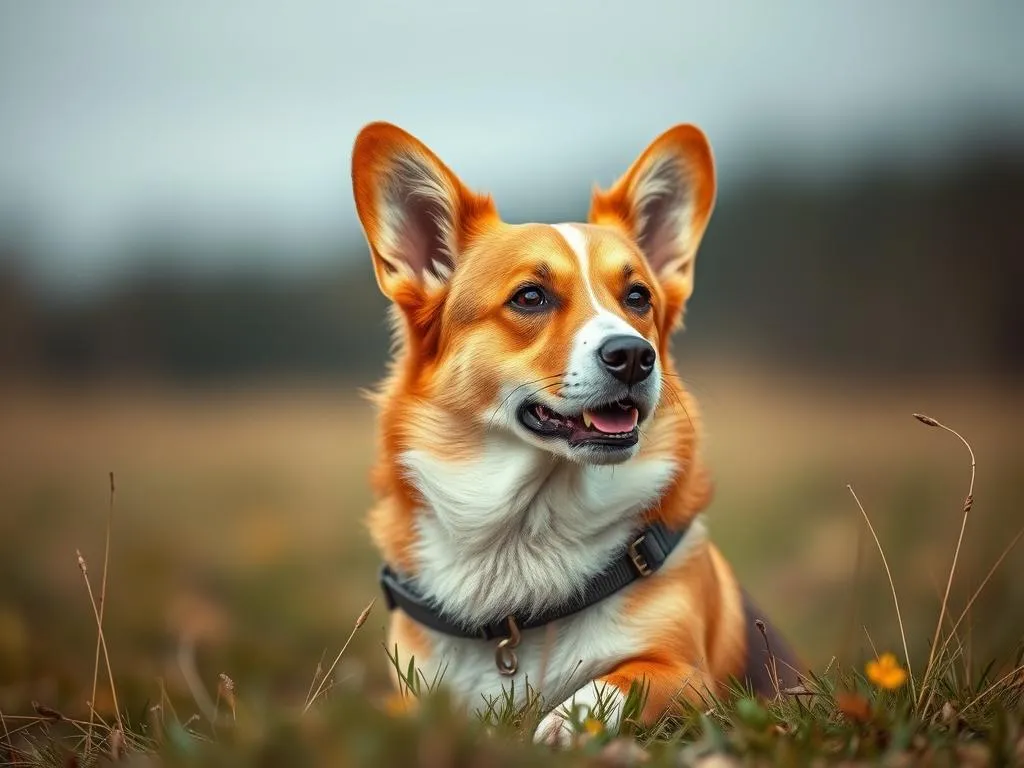
Introduction
Overview of Dog Breeds
The world of dog breeds is incredibly diverse, with over 340 recognized breeds globally. Each breed possesses unique characteristics, temperaments, and purposes, ranging from companionship to work. Understanding these traits is essential for dog owners and enthusiasts alike, as it helps in choosing a dog that fits one’s lifestyle and preferences.
Purpose of the Article
This article aims to delve into the hunting abilities of various dog breeds with a particular focus on the question: is a corgi a hunting dog? We will explore the historical roles of different breeds, including Corgis, and how their characteristics align with those of traditional hunting dogs.
Structure of the Article
To provide a comprehensive understanding, we’ll cover the following sections: an overview of dog breeds, the historical significance of hunting dogs, the specific hunting background of Corgis, their modern roles, and finally, a conclusion summarizing key points.
Understanding Dog Breeds
Definition of Dog Breeds
A dog breed is defined as a specific group of domestic dogs with distinct characteristics, such as appearance, behavior, and purpose. These traits are often the result of selective breeding practices over generations, leading to the evolution of breeds suited for particular tasks or environments.
Historically, dog breeds emerged from the domestication of wolves, evolving to assist humans in various capacities, from herding livestock to guarding properties. This historical context is essential for understanding the functions and traits of different breeds we see today.
Categories of Dog Breeds
Dog breeds can be categorized into several groups based on their primary functions:
- Working Dogs
-
These breeds are designed for specific jobs, such as guarding, pulling sleds, or rescue operations. Examples include the Rottweiler and Siberian Husky.
-
Herding Dogs
-
Breeds like the Border Collie and Australian Shepherd excel in managing livestock, showcasing intelligence and agility.
-
Hound Dogs
-
Known for their keen sense of smell and tracking abilities, hounds such as Beagles and Bloodhounds are perfect for hunting.
-
Terriers
-
These small, energetic dogs were bred for hunting vermin. Breeds like the Jack Russell Terrier and Bull Terrier showcase tenacity and courage.
-
Toy Breeds
-
Small in size but big in personality, toy breeds like the Chihuahua and Pomeranian are primarily companion animals.
-
Mixed Breeds
- Mixed breeds combine traits from various breeds, resulting in unique personalities and appearances. They often exhibit a blend of characteristics from their parent breeds.
The Role of Dogs in Hunting
Historical Significance of Hunting Dogs
Dogs have played a pivotal role in hunting throughout history. Early humans relied on them for tracking and retrieving game, leading to the development of breeds tailored for specific hunting tasks. Over time, breeds were refined to enhance their hunting capabilities, resulting in the diverse array of hunting dogs we recognize today.
Types of Hunting Dogs
Hunting dogs can be classified into different categories based on their specific roles:
- Pointing Dogs
-
These dogs, such as the German Shorthaired Pointer, are trained to locate game birds and indicate their presence to hunters by “pointing” with their bodies.
-
Retrieving Dogs
-
Breeds like the Labrador Retriever are bred to retrieve game from water or land, showcasing remarkable swimming and fetching skills.
-
Tracking Dogs
-
Known for their strong sense of smell, tracking dogs like Bloodhounds follow scent trails, making them invaluable in search and rescue operations.
-
Flushers
- These dogs, such as Cocker Spaniels, are trained to flush game birds from their hiding spots, driving them into the air for hunters to shoot.
Corgis and Their Hunting Background
The History of Corgis
Corgis, specifically the Pembroke and Cardigan Welsh Corgis, have a rich history that dates back to their origins in Wales. Originally bred as herding dogs, Corgis were tasked with guiding cattle and protecting livestock. Their low stature allowed them to nip at the heels of cattle without being kicked, making them effective herders.
Are Corgis Hunting Dogs?
When considering the question, is a corgi a hunting dog?, it’s essential to evaluate their physical and behavioral traits.
Physical Characteristics
Corgis are compact dogs with a sturdy build, short legs, and a long body. While they may not have the size or speed of traditional hunting breeds, their agility and keen senses contribute to their effectiveness in herding and managing livestock. Their build allows them to be quick and maneuverable, which can be advantageous in hunting scenarios.
Behavioral Traits
Corgis are known for their intelligence, loyalty, and strong work ethic. They possess a natural instinct to herd, often displaying behaviors such as chasing and nipping. While they may not be classified as traditional hunting dogs, their instincts can facilitate hunting-like behaviors, particularly in smaller game.
Comparison with Traditional Hunting Breeds
While Corgis showcase some hunting-like traits, they do not fit the conventional mold of hunting dogs. Traditional hunting breeds exhibit specific skills tailored for hunting tasks, such as tracking, retrieving, or flushing. Compared to these breeds, Corgis are more aligned with herding instincts, which may not translate directly to hunting.
The Versatility of Corgis
Corgis in Modern Activities
Despite their herding background, Corgis have adapted well to modern activities. They excel in various dog sports, including agility, obedience, and herding trials. Their intelligence and eagerness to please make them excellent competitors in these fields. Additionally, Corgis are often utilized in therapy and service roles, showcasing their versatility beyond traditional working tasks.
Corgis as Family Pets
Corgis make fantastic family pets, known for their affectionate nature and playful demeanor. They are loyal companions and tend to get along well with children and other pets. While their herding instincts may occasionally lead to nipping or chasing, proper training and socialization can help mitigate these behaviors.
The differences between their hunting instincts and family pet behavior highlight the importance of understanding breed characteristics. While Corgis may not be hunting dogs in the traditional sense, their unique traits and adaptability make them beloved family members.
Conclusion
Summary of Key Points
In summary, while Corgis possess some traits that may align with hunting behaviors, they are not classified as traditional hunting dogs. Their origins as herding dogs highlight their capabilities in managing livestock rather than hunting game. Understanding the unique characteristics of dog breeds, including Corgis, is crucial for potential owners, as it enables informed decisions when choosing a pet.
Final Thoughts
When considering a dog, it’s vital to reflect on its breed characteristics and how they align with your lifestyle. While Corgis may not be hunting dogs, their intelligence, loyalty, and playful nature make them wonderful companions.
Call to Action
We encourage readers to share their experiences with Corgis or other breeds, fostering a community of dog enthusiasts who appreciate the unique traits and histories of various dog breeds.









